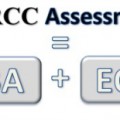Return To Teachers Speak
In past blog posts, we detailed the implications of the PARCC Assessment on professional development, classroom practice, and instructional strategies. At this point, it is helpful to consider the numerous resources that exist for educators:

• Task Prototypes and Sample Items
(www.parcconline.org/samples/item-task-prototypes)
First, this page details the purpose of the PARCC and explains the various components of the assessment by grade levels (K-2, 3-8, and High School). In grades K-2, for instance, formative assessments and resources will be provided for teachers and districts: the intent is to help teachers prepare students for PARCC assessments in later grades while simultaneously aligning with the Common Core. In grades 3-8 and high school, districts will administer both a performance-based assessment and an end-of-the year assessment (which are summative in nature). In addition, there are non-summative components, such as diagnostic assessments, mid-year assessments (MYA’s), and speaking and listening assessments. More details regarding these components can be found at the link above.
Perhaps the most useful for classroom teachers, this page provides sample test questions for grades 3-8 in Math and ELA/Literacy. For example, in 4th ELA/Literacy, the teacher can link to sample items for literary analysis, while the rd3 grade samples include research simulation items. Other grade levels provide samples for narrative tasks as well. The Math samples provide various practice problems related to tasks that assess: (1) concepts, skills, and procedures; (2) mathematical reasoning; and (3) modeling/applications.
Also included on this page are sample rubrics to help teachers understand what is expected of students for the prose-constructed responses (PCR). The link to “Writing forms” in this section outlines different writing forms students may be asked to write on by grade level, including (but not limited to): adventure stories, myths, letters, persuasive letters, reports, etc. With each progressive band of grades (grades 3-5, 6-8, 9-11), additional writing forms are added to the previous forms found in the earlier grades. In other words, grades 6-8 may require students to write anecdotes, apologies, complaints, editorial, and reviews (in addition to the aforementioned 3rd grade – 5th grades’ possible writing forms). Likewise, grades 9-11 could ask students to write in any of the forms from grades 3-8, along with the following: satires, spoofs, and testimonials.
• In the Classroom
(http://www.parcconline.org/classroom)
This page highlights all of the resources that will aid the classroom teacher in preparing his/her students for the assessment. As of Winter 2013, teachers can expect to find a “dynamic and interactive web-based library of all PARCC resources and materials” at the Partnership Resource Center.
You also may wish to check out the link to a survey that’s available to provide PARCC with your feedback. By voicing your needs, questions, and concerns, PARCC staff will be able to make their resources more teacher-friendly and useful.
• Field Test Administration and Timeline/Technology
PARCC Field Test and PARCC Technology
For those who want more information regarding the 2014 field testing (for the performance based test and end-of-year assessment), this page will keep educators updated on timeframes and any changes to test administration dates. The technology link is useful for administrators and technology supervisors who need to ensure that their district meets the minimum specifications for the technology requirements for the PARCC.
Due to the evolving nature of this assessment at the current time, the website makes it clear that more information will be forthcoming. However, use of these already-published materials can help teachers and administrators alike prepare as much as possible right now. To follow continuing updates, visit: http://www.parcconline.org






PARCC has done a terrific job of making their assessment process transparent. The resources they offer are helpful and extensive–literally hundreds of pages. In addition to the http://www.parconline.com resources offered above, allow me to add my blog and related resources at http://www.partnerinedu.com. My blog offers classroom tips for designing and incorporating the kinds of thinking and demonstrations of learning that are essential in life and valued by Common Core and PARCC.